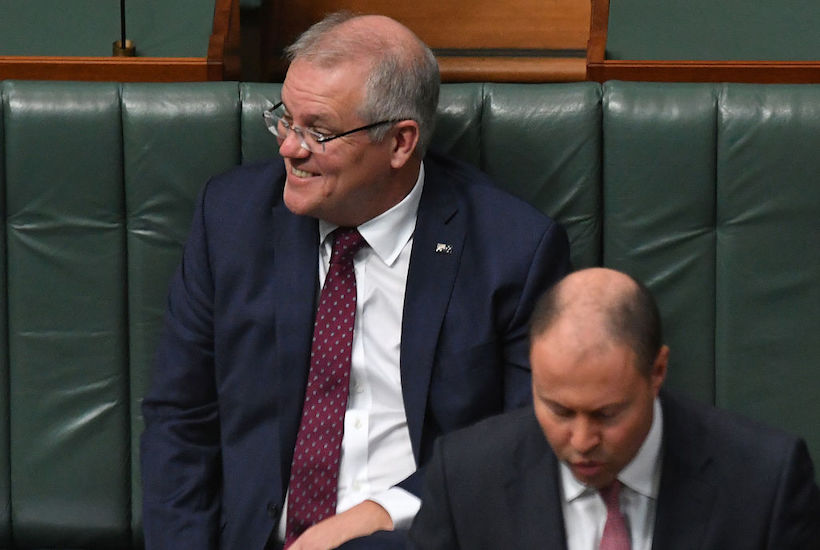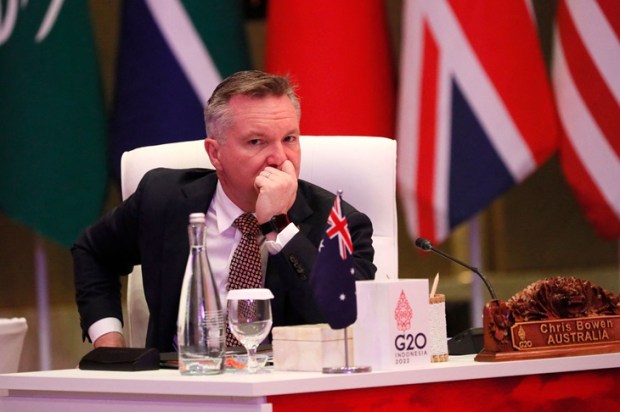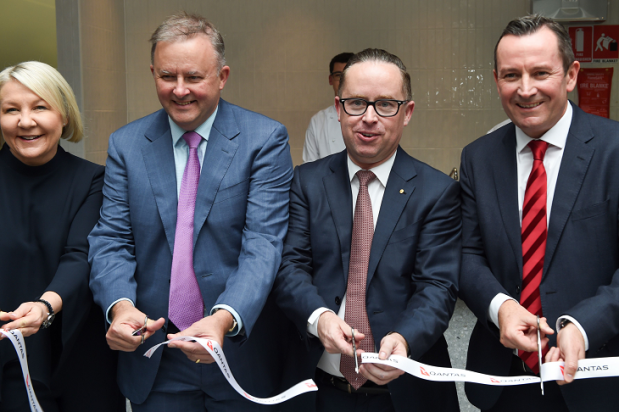The $320 billion in costs the Australian government has incurred to sustain and stimulate the economy in light of the COVID-19 crisis is money spent for consumption without it attracting any corresponding production. It is a permanent loss that can only be retrieved by increased production. Two areas where reform could compensate for this loss of revenue are the cessation of wasteful spending and regulations in water and energy, where total savings of $50 billion are available.
But in addition to these direct savings, removal of these regulatory and taxpayer costs would unleash even larger productivity benefits in the two sectors.
For water, in Australia’s most important irrigation area, the Murray Darling Basin, the government’s actions in buying up 20 per cent of irrigators’ water for spurious environmental purposes has brought a tenfold increase in the water price, and hence its cost to farmers. At least $7 billion could be saved by the government reselling the water it holds to irrigators and recalling the funds yet to be spent.
In addition, the economy would make other gains. Water is an essential input to agriculture and the increased output restoring the environmental flows would allow a boost to production and lower costs bringing additional output of at least $12 billion over the next 10 years.
Elsewhere in Australia, regulations have made it very difficult for farmers or entrepreneurs to build new dams. Relaxing these would provide a further boost to primary industry.
With energy, in the year 2000, Australia’s deregulated electricity industry gave us the world’s lowest prices. Since then, subsidies to wind and solar power have forced the closure of lower cost and more reliable coal generators, causing Australian electricity costs to be among the highest cost in the world.
Currently, the annual cost of government spending and of subsidies is $4.2 billion.
The subsidies to wind/solar are the equivalent of a regulatory tax on coal generators, which still supply three-quarters of the nation’s electricity. Coal generators only operate efficiently if producing continuously but to accommodate intermittent wind and solar supplies coal generators are forced into lengthy back-offs plus the stop-start running. These undermine their economics.
The growing share of intermittent wind brought closures of South Australia’s Northern Power Station in 2016 and Victoria’s Hazelwood in 2017. The resulting supply deficit saw prices more than double.
Electricity’s wholesale price increase caused by regulations and subsidies in support of renewables was about $55 per MWh. With national demand at 230,000 GWh, the cost to customers is almost $13 billion per year. This is in addition to the direct annual costs of government spending and regulations of $4.2 billion.
For industry – especially energy-intensive businesses, this savagely reduced competitiveness – with aluminium smelting, formerly the doyen of Australian manufacturing, poised to totally shut down. A deregulated electricity industry that immediately cancelled all subsidies would restore the low cost, reliable system we formerly enjoyed and allow a surge in productivity growth.
Australia’s fabulous levels of natural wealth in per capita terms exceed those of any other country save for a few in the Middle East with low populations. For over a generation, the harnessing of that wealth has been hampered by regulatory restraints, especially those in wasteful obeisance to mystical green causes. Reversing course on this offers us opportunities better than those available to any other country to compensate the COVID-19 costs government has incurred. For water and electricity alone, over a ten-year period, removing regulations and subsidies brings direct savings of $50 billion, while the lower costs of this means further savings of at least $120 billion.
But what chance is there of such outcomes prevailing? The US Democrats’ Presidential candidate, Joe Biden, last week called for using the tragedy to crank up climate change regulations. Many, even within conservative circles in Australia, agree with him. Others are too cowed to make the case against by green alarmism.
The Morrison Government has proved itself capable of matching the Rudd government in spending money it does not have. Does it have the economic understanding and confidence to convert the nation’s potential wealth into first restoring and then increasing income levels prevailing before the crisis hit?
Alan Moran is with Regulation Economics. His latest book is Climate Change: Treaties and Policies in the Trump Era.
Got something to add? Join the discussion and comment below.
Got something to add? Join the discussion and comment below.
Get 10 issues for just $10
Subscribe to The Spectator Australia today for the next 10 magazine issues, plus full online access, for just $10.


























Comments
Don't miss out
Join the conversation with other Spectator Australia readers. Subscribe to leave a comment.
SUBSCRIBEAlready a subscriber? Log in